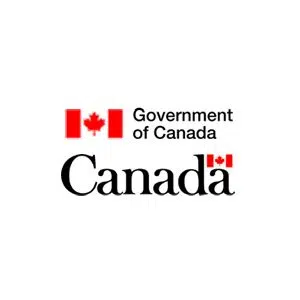The federal government is expanding travel exemptions at the border to allow more families to re-unite and more foreign students into the country.
News release from Government of Canada:
Immigration, Refugees and Citizenship Minister Marco E. L. Mendicino, Public Safety and Emergency Preparedness Minister Bill Blair and Health Minister Patty Hajdu today announced that, in addition to the border restrictions that remain in place, the Government of Canada is further strengthening the public health presence at the border and enhancing quarantine monitoring. The government is also increasing the use of digital forms and processes to allow critical information to be shared more quickly with provinces and territories. In addition, a process is being introduced to support enhanced family reunification, including those in long-term exclusive relationships, international students and entry for compassionate reasons.
The government continues to enforce and strengthen travel restrictions and border measures that have been in place since March 2020. The mandatory quarantine measures, which require travellers to quarantine or isolate for 14 days immediately upon entry to Canada (unless they are expressly exempt), have been effective.
Every port of entry has 24/7 access to quarantine officer support through the Central Notification System. The presence of federal public health officers at the border is also being scaled up over the coming months to cover 36 ports of entry that account for 90% of all traffic into Canada during normal operations. A total force of 190 public health officials will be deployed across the country by the end of the fiscal year. To improve information-sharing, the Public Health Agency of Canada has deployed digital portals for travellers to share their critical information, including through the ArriveCAN app, so data can be transmitted to provinces and territories quickly and securely.
The government is also strengthening compliance and enforcement efforts. Currently, some 100 designated screening officers at a call centre make approximately 4,300 live calls and 3,500 automated calls daily to travellers entering Canada, for a total of nearly 1 million contacts since March 2020. The Public Health Agency of Canada is working with Service Canada to further increase these numbers.
These calls are followed up by law enforcement if any individual cannot be reached, or if a traveller is suspected of not complying with quarantine requirements. Law enforcement authorities, such as RCMP or provincial police officers, have full authority in jurisdictions that have signed on to the Contraventions Act ticketing regime to issue fines of up to $1,000 and may ticket an individual again in the presence of repeated instances of non-compliance, resulting in multiple fines. Where the non-compliance is not addressed through a contraventions ticket, an individual could face fines of up to $750,000 and up to 6 months in prison where charges are laid for an offence under the Quarantine Act. Willfully or recklessly contravening the Quarantine Act could also result in fines of up to $1 million and 3 years’ imprisonment.
With these robust protections in place, processes are being introduced to support greater family reunification, entry for compassionate reasons, and the safe and gradual entry of some international students. More specifically, these processes will provide for the entry of
- certain extended family members of Canadian citizens and Canadian permanent residents, including those in an exclusive dating relationship of at least 1 year and their dependent children, as well as adult children, grandchildren, siblings and grandparents
- foreign nationals for compassionate reasons in specific circumstances, such as life-threatening illness, critical injury or death, with potential limited release from quarantine
- international students, starting October 20, 2020, if they will be attending a designated learning institution that has been identified by their provincial or territorial government as having a COVID19 readiness plan in place
Detailed information on who may qualify as an extended family member and the process and requirements to be eligible to travel to and enter Canada will be available on the Immigration, Refugees and Citizenship Canada website on October 8, 2020. There will be a robust process in place for extended family members, and each traveller will need to apply for and be issued an authorization before they can travel to Canada.
Information on eligibility and the process for travel and entry to Canada for compassionate reasons will be available on October 8, 2020, on the Public Health Agency of Canada’s website, canada.ca/coronavirus.
Travellers should not make any travel plans until they have met all requirements and obtained all necessary authorizations to qualify to come to Canada under the new rules.
The government’s top priority remains stemming the spread of COVID19 and protecting the health, safety and security of Canadians. These new measures will bolster the effectiveness of Canada’s travel restrictions, while recognizing additional specific circumstances where a foreign national’s presence in Canada will be beneficial and can be safely accommodated. These measures also build on recently announced initiatives for those sponsoring their spouses to come to Canada.



